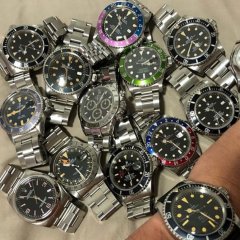Search the Community
Showing results for tags 'read'.
-
Now then I know there's a Soft Belly Fat Vs. Hard Belly Fat and the difference can mean LIFE and DEATH! Must admit I used to drink quite a bit of beer but has refrain from it for years , came across this article on the net and hope to let brothers here know the dangers. http://www.livestrong.com/article/338079-s...hard-belly-fat/ Overview Belly fat isn't all the same. One type of belly fat seems squishy and is easy to grab between your fingers; the other is like a bowling ball in the middle of the gut. The differences between the two types of fat don't end there. Understanding the dramatic difference between the two types of belly fat may extend your lifespan, especially if you carry extra weight in the abdominal region. Subcutaneous vs. Visceral The belly fat you can grab in your hand is subcutaneous fat, which resides between your skin and abdominal wall. This fat tends to be more visible than deeper fat, but it isn't as harmful as visceral fat, which surrounds your abdominal organs, according to MayoClinic.com. Causes Aging causes your metabolism to slow down. Being sedentary can also contribute to weight gain as you get older. However, factors such as age and lack of physical activity don't directly influence the amount of visceral fat you have. Hormonal changes that occur after menopause can cause women to store more fat in their bellies. Additionally, some people inherit a tendency to be "apple-shaped" as opposed to "pear-shaped." Health Risks Visceral fat is linked with a variety of health problems, including high cholesterol, high blood pressure, insulin resistance and diabetes, according to UAB Medicine. These conditions increase your risk of stroke and heart attack. Visceral fat may be linked to such health conditions because it's thought to be biologically active. This means it acts more like an endocrine organ or gland that produces hormones and other substances that may damage your health, according to Harvard Health Publications. Having too much visceral fat may throw off the functioning of hormones that help keep the body in balance. Screening You can determine whether you're likely to have too much visceral fat by taking a few simple measurements. Wrap a tape measure around your waist. You may have a dangerous amount of visceral fat if you are a woman and your waist is at least 35 inches, or if you're a man whose waist is at least 40 inches around. You may also be at increased risk for health problems related to belly fat if your waist-to-hip ratio is over .80 as a woman and over .90 as a man. Treatment Eating fewer calories and burning off more calories through exercise can help you burn off visceral fat. Visceral fat seems to burn off quickly once you commit to losing weight. For optimum benefits, get at least 30 minutes of cardiovascular exercise on most days and do weight-training sessions two to three days per week, recommends UAB Medicine. You may also lose weight at a rate of 1 lb. to 2 lbs. per week if you cut down your daily caloric intake by 500 to 1,000 calories. However, consult your doctor about your weight loss plans to ensure that your method is ideal for your individual needs. How many brothers here have HARD FAT belly?
-
ERP rates for three gantries to increase by S$1 Read more at https://www.channelnewsasia.com/news/singapore/erp-rates-buona-vista-aye-cte-ecp-pie-kpe-serangoon-gantries-11762760
-
I was at a service outlet ( not to be mentioned ) and while leisurely sipping my coffee, the mechanic walks to a man beside me and told him he should perform engine flush because his mileage is time for him to do engine flushing. So the man asked for the price of engine flushing and then verbally agree to let the mechanic proceed with the additional work done. Before I can finish my coffee, the mechanic walks back to the man again. He then mentioned that the spark plug not so good. He suggest change all since doing engine flushing. The man ask for the price again. The man realise it is a bit expensive so he is a little rejecting the offer. The mechanic immediately assure the man not to worry as he will ask the shop boss for discount. Came back shortly and say the management agree to give discount on the spark plugs for $xx amount. Hearing that there is discounted price, the man agrees again. OK I don't wish to stereotype people out here, but the car is just beside you, you should stand up, demand to see the condition of the spark plug, judge for yourself if it is rightful to change. However all this while, that man's butt was stuck to the seat. He never took a blink of an eye to look at his car, nor ask for more detail opinion. He readily accepts. Engine flushing, whether it is legit or snake oil, you should also judge. But looking at the man's reaction from the proposal, he seems to be nullified of his knowledge of cars, even basic servicing. He would listen to what the mechanics says. His only concern is price. That is no way you should even offer your car to a service outlet or workshop to take your hard earned money. Sometimes ignorant is bliss. But when comes to ignorance of basic car care, it is blitz.
- 150 replies
-
- 11
-

-

-
A comic book, also called comic magazine or simply comic, is a publication that consists of comic art in the form of sequential juxtaposed panels that represent individual scenes. Panels are often accompanied by brief descriptive prose and written narrative, usually dialog contained in word balloons emblematic of the comics art form. Do anyone here collect comic books? Which titles do you have in your collection? Which origins do you like? American comic books, Japanese Manga, Hong Kong manhua, etc. What genres do you like? Superhero, sports, racing, funny, dark, etc.
- 16 replies
-
- 2
-

-
- comics
- japanese manga
-
(and 5 more)
Tagged with:
-
Hi, can anyone please help me with how much pressure to pump for my front and for my rear tyres? I can't understand the typre pressure label in the photo. thanks!
-
I always want our SG govt would consider giving pension to our elderly. In the olden days, our grandparents earned low wages and now facing high cost of living. Some told me that if we want to give pension to the elderly, we need to pay higher taxes. However, after reading this late news, I seriously got nothing much to say. Take a deep breath and read on. --------------------------------------------------------------------------------------------------------------------------------------------------------------------------------------------------------------------------------------------------------------------------------- If you didn't already know, our office holders receive pensions. Yes, a sum of money after they quit for the rest of their lives. It's in the government statutes here - http://statutes.agc.gov.sg/non_version/cgi...le&doctitle Who is an office holder? - The term office holder includes the Prime Minister, Deputy Prime Minister, Speaker, Senior Minister, Minister, Senior Minister of State, Minister of State, Mayor, Senior Parliamentary Secretary, Parliamentary Secretary or Political Secretary. How much? - Depending of length of service, office holders can get a maximum of 2/3 of their annual last drawn salary as an annual pension. For example, PM Lee earns S$3.87m a year now, will get at least S$2.58m a year when he retires. Mah Bow Tan will get at least S$1.8m a year. Vivian Balakrishnan will get S$800k for his 9 years in ministerial office if he retires this year. Pension lumpsum - Pensions can be paid out in lumpsum if the office holder retiree so chooses. For this purpose the annual pension sum payable is multiplied by a 'prescribed commutation factor' to be decided by the President. Someone who sent an email out about this reckons this number to be 14.6. So if a minister's annual salary is S$2m when he retires, he can ask for S$29.2m in one go. Taxes on pension - None. See government statutes http://statutes.agc.gov.sg/non_version/cgi-bin/cgi_getdata.pl?actno=2001-REVED-134&doctitle=INCOME+TAX+ACT&date=latest&method=part&segid=1009775494-001719 section (h)://http://statutes.agc.gov.sg/non_vers...719 section (h) What about the rest of the civil service? - The rest of the civil service was converted away from the pension scheme to CPF some time ago. So ministerial office is only civil service position in SG that allows for pensions now. So what's the problem? - After the facts, this is an opinion - These guys already are the highest paid politicians in the world. Seriously, it's a lot of money. Aren't they also saving up for their retirement like the rest of us? We private sector folks will get nothing when we retire (hopefully). MM has encouraged us to keep on working into our 60s and 70s - is it so that our continuing tax payments would fund their pensions? Talk about skewing the rich-poor gap. I'm not cool with it. - Gurmit Singh Source: Link
-
http://www.channelnewsasia.com/news/singapore/bilahari-kausikan-on-the/2235302.html Sent from Channel NewsAsia Android app. SINGAPORE: Prime Minister Lee Hsien Loong has posted on Facebook a speech by Ambassador-at-Large Bilahari Kausikan, which was delivered on Oct 31, when Fitzwilliam College of Cambridge University held a conference on the legacy of the late Mr Lee Kuan Yew. Below is PM Lee's post in full, including the speech by Mr Kausikan: Last Saturday, Fitzwilliam College (my father’s old college) of Cambridge University held a conference on the legacy of Mr Lee Kuan Yew. Ambassador-at-Large Bilahari Kausikan spoke at the event. He recounted his personal experience working with Mr Lee, and made telling points about the external challenges that a small country in Southeast Asia will always face. I found it well worth reading, and hope you will too. - LHL Ambassador-at-Large Bilahari Kausikan spoke at a Conference on the legacy of Lee Kuan Yew and the future of Singapore at Fitzwilliam College, Cambridge, on 31 October 2015. Thank you for inviting me to join you in paying tribute to the memory and legacy of Mr Lee Kuan Yew. My generation of Singapore Foreign Service officers were privileged to have had the opportunity to work with Mr Lee and his comrades: Dr Goh Keng Swee and Mr S Rajaratnam. These three men defined the essentials of our foreign policy. Their ideas were formed by the imperatives of survival in the less than benign environment in which Singapore found itself on 10th August 1965, the morning after what was politely termed ‘Separation’. My colleagues and I learnt our trade from them. We did so in very humble capacities: taking notes at their meetings or seeing to the necessities of their travels, but still privileged to observe them at close quarters and absorb something of their modes of thought and operating style. It was a unique apprenticeship. Then as we assumed more senior positions, we came to understand a little more of their considerations by sitting-in on their policy discussions and even occasionally contributed our mite to their decisions. Some of us had studied international relations as an academic subject before joining the Foreign Service. But after 35 years, I have concluded that any resemblance between what I had studied and what I eventually did for a living was purely coincidental. Our real education in the realities of the diplomacy of a small country only started when our professional lives were touched, however tangentially, by Mr Lee and his comrades. The most valuable thing they imparted to us was a cast of mind. Mr Rajaratnam, our first Foreign Minister, has described his first meeting with the international press as Foreign Minister. It was only a few days after we had independence thrust upon us. Relations with Malaysia were fraught with racial tension; Sukarno’s Indonesia was still fighting an undeclared war against us and to our north in Indochina, the Cold War had turned hot. The newsmen were braying for information on how newly independent Singapore would conduct itself. ‘What’, Mr Rajaratnam told us he asked Mr Lee, ‘shall I tell them?’ ‘Just wear a tie, Raja”, was the answer, ‘you’ll think of something’. Big countries may delude themselves about being always in control of events. Small countries cannot afford such illusions. For small countries, foreign policy is usually a series of not always neat or consistent improvisations to a messy and unpredictable reality. The future can at best be only dimly glimpsed and in any case cares not a whit for your concerns. So you must pragmatically adapt yourself to it. One must of course set goals. But having done so, more often than not the most one can do is keep a distant star in sight as one tacks hither and tither to avoid treacherous reefs or to scoop up opportunities that may drift within reach. Successful navigation requires a clinical – indeed cold-blooded – appreciation of the world as it is and not as you may wish it to be. This is harder than you may think. Diplomacy is an area of human endeavour that is more than usually susceptible to self-deception and wishful thinking. Mr Lee and his comrades were not devoid of idealism. Singapore as it is today would not otherwise exist. They risked their lives to make it so. But idealism must be rooted in a hard-headed understanding of the realities of human nature and power. Without power nothing can be achieved. And even with power not everything desirable will always be feasible. No matter how fervently one may wish that they may be liberated from the surly bonds of earth, pigs are never going to sprout wings and fly. Understanding requires information. Mr Lee had intense intellectual curiosity. He sought information without regard for hierarchy. He was tolerant of alternate views or at any rate, he was tolerant of the young and brash desk officer as I then was who, too green to know that the tiger is dangerous, ventured on occasion to argue with him. The tiger’s roar is fearsome and its fangs are sharp. Mr Lee sometimes tried to intimidate you into agreement. But if you stood your ground with reasoned arguments, he listened even if he did not agree. And I am here to tell the tale. Mr Lee and his comrades were impatient of complexity for complexity’s sake; for the sake of showing off how clever one was. He did not suffer fools. If he sought a view, it was to be taken for granted you had something useful to say and would say it in the fewest possible words. And if you didn’t know, say so. What Mr Lee and his comrades possessed to a greater degree than anyone else I have ever met, was an uncanny ability to zero into the core of even the most complicated problem or situation. They wielded Occam’s razor with great intellectual ruthlessness, slashing through the pious obfuscations which too often shroud international issues. Margaret Thatcher once said of Mr Lee: ‘He was never wrong’. That is of course, not true. Nobody can be always right, particularly in international affairs where most of the time most of the factors are going to be unknown or only partially known and where even the effort to know may change what you are trying to know But Mr Lee and his comrades were never shy about changing their minds. Again this is harder than you may think. Too often vested interests, stubbornness or just plain pride stands in the way. Too many people believe their own propaganda. Mr Lee and his comrades avoided this most common of pitfalls because their laser-like focus was always the national interest of Singapore. And they never confused ideology with interest. Diplomacy is not all about being pleasant or making oneself agreeable. It is about defending and advancing the national interest, preferably by being pleasant and agreeable, but if necessary by any appropriate means. In this respect, having to stand your ground in the face of the tiger’s roar – and in the shadows of diplomatic politesse lurk many wild beasts – was another valuable lesson. This is particularly so in Southeast Asia, where majority Chinese Singapore which organizes itself on the basis of multiracial meritocracy, is something of an anomaly. We live in a region where the Chinese are typically a minority and not a particularly welcome one, and where our neighbours organize themselves on the basis of very different principles. Perhaps Mr Lee’s greatest mistake was, during the period when we were part of Malaysia, to underestimate the lengths to which the Malay leadership in Malaysia would go to defend ‘Ketuanan Melayu’ – Malay dominance. It was not a mistake that he or any of our leaders ever made again. The basic issue in Singapore’s relations with our neighbours is existential: the implicit challenge that by its very existence a Chinese majority Singapore organized on the basis of multiracial meritocracy poses to systems organized on the basis of different and ultimately irreconcilable principles. That we have the temerity to be successful, adds to the offence. None of this means we cannot cooperate with our neighbours: we must, we can and we do. But we must do so from a position of strength. Mr Lee was a lawyer and had a deep belief in the rule of law. Yet as a former Chief of the Malaysian Armed Forces has recounted, Mr Lee told him: “if PAS comes into power … and tries to meddle with the water in Johor Bahru, I’ll move my troops in. I will not wait for the Security Council to solve this little problem.” But Mr Lee also once told an Israeli General who had helped start our armed forces that Singapore had learnt two things from Israel: how to be strong, and how not to use our strength; meaning that it is necessary to get along with neighbours and no country can live in perpetual conflict with its neighbours. But we are different and we must remain different to survive. Small countries have no intrinsic relevance. To small countries, relevance is an artefact created by human endeavour and having been created, must be maintained by human endeavour. To remain relevant we cannot be ordinary. We cannot be just like our neighbours. We have to be extraordinary. Yet being extraordinary does not always endear us to our neighbours. The management of this paradox lies at the heart of our foreign policy and prescribes our most fundamental approaches: maintaining balance in Southeast Asia by facilitating the engagement of all major powers in our region, while fostering regional cooperation through ASEAN and maintaining our edge and keeping our powder dry. Singapore and Southeast Asia in 2015 is obviously not the same as Singapore and Southeast Asia in 1965. But some things do not change: our geopolitical situation and how our neighbours chose to organize themselves. The parameters of choice for small countries are never overly broad. The approach that Mr Lee and his comrades bequeathed to my generation of Foreign Service Officers and which we have tried to impart to our successors, still serves us well. Our environment is still complicated and perilous. The US and China are competing for influence with a greater than usual intensity as they grope towards a new accommodation with each other and the region. Malaysia is on a political trajectory that has heightened racial and religious tensions and may well lead to violence. The haze that regularly envelopes Southeast Asia is a reminder that post-Suharto Indonesia is still an incoherent and rent-seeking polity which has yet to reach a stable political equilibrium. The key challenge is internal: that a new generation of Singaporeans will take the achievements of Mr Lee and his comrades for granted as the natural order of things and be persuaded that we are no longer vulnerable. Some opposition politicians and their fellow travellers among the intelligentsia have tried to do just that. They either do not understand their own country and region or place their ambitions above the national interest. Fortunately, as the results of our recent General Election have demonstrated, the majority of my compatriots do not believe them
- 23 replies
-
- 4
-

-
- ambassador at large
- bilahari
-
(and 5 more)
Tagged with:
-
- 29 replies
-
- 18
-

-
Everyone is a genius but if you judge a fish by its ability to climb a tree, the fish will always think its an idiot - Thomas Edison True, isn't it? How often do we judge a person by what he does best as compared to judging him based on what he happens to be doing? We must hang together or we shall most assuredly hang separately - Benjamin Franklin This statement was made during the American Revolution, Meaning if the Founding Fathers did not band together, they will be defeated by the British and all will be hanged. Thats a principle largely forgotten today. Lesson: In a company, either everyone help each other or if they insist on backstabbing, the company will lose money and everyone loses. Sometimes we are so individualistic that we forget our organisation's success is our success as well. Anyone has anything meaningful to share?
- 24 replies
-
- 2
-

-
- hyundai
- meaningful
-
(and 3 more)
Tagged with:
-
Now, this is what I call consumer protection. http://www.smh.com.au/business/fisher--paykels-fine-print-too-fine-leads-to-200000-fine-20141221-12bm3d.html Fisher & Paykel's fine print, too fine, leads to $200,000 fineStephen Cauchi Published: December 22, 2014 - 10:33AM Whitegoods and appliance company Fisher & Paykel has been fined $200,000 for telling customers they needed to buy an extended warranty to protect their product against repair costs, while putting the truth in fine print. Warranty provider Domestic & General, who issued the extended warranty on behalf of Fisher & Paykal, was also fined $200,000. The Australian Competiton and Consumer Commission commenced action against Fisher & Paykel and Domestic & General in the Federal Court in late 2013 over the warranty documents accompanying dishwasher sales. Under Australian consumer law, consumers may be entitled to a repair, replacement or refund on a product beyond the time period covered by the manufacturer's warranty if the product suffered "major failure" or is not of "acceptable quality". However, the ACCC alleged that Domestic & General sent out 48,214 letters to purchasers of a dishwasher that had a two-year warranty. The letter stated that "your dishwasher is now a year old, which means you have 12 months remaining - after that your appliance won't be protected against repair costs. Fisher & Paykel can help." The letter then offered, for a fee, an extended two-year warranty on top of the original warranty. Federal Court Justice Michael Wigney said in his judgment, released on Friday, that Fisher & Paykel conceded that the statement was "false and misleading and the making of it was conduct that was misleading and deceptive". The misleading statement was "prominent" in that it was displayed in the main text of the letter on the front page, he ruled. Even though the relevant part of Australian consumer law was mentioned in the letter, said Justice Wigney, it was "in relatively fine print on the reverse side of the letter". The fine print included the statement that "you are entitled to a replacement or refund for a major failure and compensation for any other reasonably forseeable loss or damage. You are also entitled to have the goods repaired or replaced if the goods fail to be of acceptable quality and the failure does not amount to a major failure." The court heard that 1326 consumers purchased extended warranties, paying between $100 and $220. After proceedings against Fisher & Paykel and Domestic & General began in the Federal Court, all of these consumers were contacted and "unconditionally offered a full refund" on the extended warranty, said Justice Wigney. Only 107 consumers did so. It is "unclear why so few consumers claimed a refund," said Justice Wigney. Fisher & Paykel and Domestic & General were also ordered to pay $15,000 in costs. The Australian Competition and Consumer Commission began a national awareness campaign on extended warranties in 2012. "While extended warranties may offer protection over and above that provided by the Australian Consumer Law, they do not replace the underlying consumer guarantees," according to the ACCC. This story was found at: http://www.smh.com.au/business/fisher--paykels-fine-print-too-fine-leads-to-200000-fine-20141221-12bm3d.html
- 45 replies
-
- 4
-

-
- case
- consumer protection
- (and 4 more)
-
http://www.allsingaporestuff.com/article/greedy-singaporean-business-owners-suppressing-wages-fellow-singaporeans
- 102 replies
-
- kia
- singaporean greedy mentality
-
(and 3 more)
Tagged with:
-
This is a cut and paste which contains many of life's meanings that i think is worthwhile sharing. ------------------------------------------------ I've learned - That you cannot make someone love you. All you can do is be someone who can be loved. The rest is up to them. I've learned - that no matter how much I care, some people just don't care back. I've learned - that it takes years to build up trust, and only seconds to destroy it. I've learned - that it's not what you have in your life but who you have in your life that counts. I've learned - that you can get by on charm for about fifteen minutes. After that, you'd better know something. I've learned - that it's not what happens to people that's important. It's what they do about it. I've learned - that you can do something in an instant that will give you heartache for life. I've learned - that you should always leave loved ones with loving words. It may be the last time you see them. I've learned - that either you control your attitude or it controls you. I've learned - that regardless of how hot and steamy a relationship is at first, the passion fades and there had better be something else to take its place. I've learned - that learning to forgive takes practice. I've learned - that money is a lousy way of keeping score. I've learned - that sometimes when I'm angry I have the right to be angry, but that doesn't give me the right to be cruel. I've learned - that true friendship continues to grow, even over the longest distance. Same goes for true love. I've learned - that maturity has more to do with what types of experiences you've had and what you've learned from them and less to do with how many years you've lived. I've learned - that you should never tell a child their dreams are unlikely or outlandish. Few things are more humiliating, and what a tragedy it would be if they believed you. I've learned - that no matter how good a friend is, they're going to hurt you every once in a while and you must forgive them for that. I've learned - that it isn't always enough to be forgiven by others. Sometimes you have to learn to forgive yourself. I've learned - that no matter how bad your heart is broken the world doesn't stop for your grief. l've learned - that just because two people argue, it doesn't mean they don't love each other and just because they don't argue, it doesn't mean they do. I've learned - that sometimes you have to put the individual ahead of their actions. I've learned - that you shouldn't be so eager to find out a secret. It could change your life forever. I've learned - that no matter how you try to protect your children, they will eventually get hurt and you will hurt in the process. I've learned - that there are many ways of falling and staying in love. I've learned - that your life can be changed in a matter of hours by people who don't even know you. I've learned - that even when you think you have no more to give, when a friend cries out to you, you will find the strength to help. I've learned - that writing, as well as talking, can ease emotional pains. I've learned - that credentials on the wall do not make you a decent human being. I've learned - that the people you care most about in life are taken from you too soon.
-
Hahaha... This guy damn pervert!!
-
from Yahoo : Saunas linked with lower sperm count in men AFP Relax
-
TRANSCRIPT OF MINISTER MENTOR LEE KUAN YEW
-
Hi hi, Anymore meet up? I'm new to this forum and have read about those meet ups that you guys have organise. I'm hopping to participate one. Anyone?
-
...and join!! Due to the current financial situation caused by the slowdown in the economy, the Government has decided to implement a scheme to put workers of 50 years of age and above on early, mandatory retirement, thus creating jobs and reducing unemployment. This scheme will be known as RAPE (Retire Aged People Early). Persons selected to be RAPED can apply to the government to be considered for the SHAFT program (Special Help After Forced Termination). Persons who have been RAPED and SHAFTED will be reviewed under the SCREW program (System Covering Retired-Early Workers). A person may be RAPED once, SHAFTED twice and SCREWED as many times as the government deems appropriate. Persons who have been RAPED could get AIDS (Additional Income for Dependants & Spouse) or HERPES (Half Earnings for Retired Personnel Early Severance). Obviously persons who have AIDS or HERPES will not be SHAFTED or SCREWED any further by the government. Persons who are not RAPED and are staying on will receive as much s--t (Special High Intensity Training) as possible. The government has always prided themselves on the amount of s--t they give our citizens. Should you feel that you do not receive enough s--t, please bring this to the attention of your local Member of Parliament who has been trained to give you all the s--t you can handle. Sincerely, The Committee for Economic Value of Individual Lives (E.V.I.L.)
-
Car Loan Car loans are one of the most misunderstood loans as they are structured differently from a housing loan. People often claim that car loans which have 1-3% interest rates are very cheap, cheaper than housing mortgage interests in some countries, or is it? Car loan interests are calculated based on the principle for the whole tenure while housing loan interests are calculated based on the principal outstanding. A simple rule of thumb is that the car loan interest rate is nearly double in housing loan term rates! So a 3% car loan interest is actually closer to 6% if you want to compare to housing loan. Now you know why you should pay up your car loan as soon as you can. For those who live in the city like Singapore, public transport is a viable alternative. If you have to own a car due to work or so on, buying a second hand car can be a huge money saver as well.
-
http://sg.news.yahoo.com/mystery-surrounds...me-student.html 26-year-old Tan Songchun was a healthy part-time student at Singapore Institute of Management. When he returned from work and went into his room at his parents
-
I think most interested in properties have already read this article. http://www.asiahomepreview.net/2012/02/25/437/ Your opinions on this article? My opinion: I agree that an 'excessive price fall' is unlikely. I'm thinking of 8-10 percent. PAP really don't want the bubble to burst. They want to let it slowly deflate. The article does not account of foreigners leaving. And of all those that came, how many plan on actually buying and staying here for good? Definition of foreigners? PRs only? Or including EP/WP? It is ridiculous to include foreign labourers in his number of foreigners, but maybe he excluded them already?
-
taken from blog in mcf........ If you currently own the latest Volvo S60 or XC60 and feels that heat is building up from below, it is better to pull over at the side of the road and check. This is because Volvo is recalling 2,742 2012 Volvo S60s and XC60s in the US due to a potential fuel leak that increases the risk of a fire, according to the National Highway Traffic Safety Administration (NHTSA). so mr powder, please change to xc90 or something bigger and mightier for your safety sake. Take care.....
-
DO you think the ex-students are RIGHT or WRONG? A Bunch Of Young Lawyers Are Suing Their Law Schools Because They Don't Have Jobs By Array | Business Insider
-
Exposing the 6 major flaws in the PAP's immigration policy Thursday, January 28, 2010 THE TEMASEK REVIEW The twin issues of immigration and foreign workers have perpetually hogged the headlines since last year, an indication of how it has become a





















